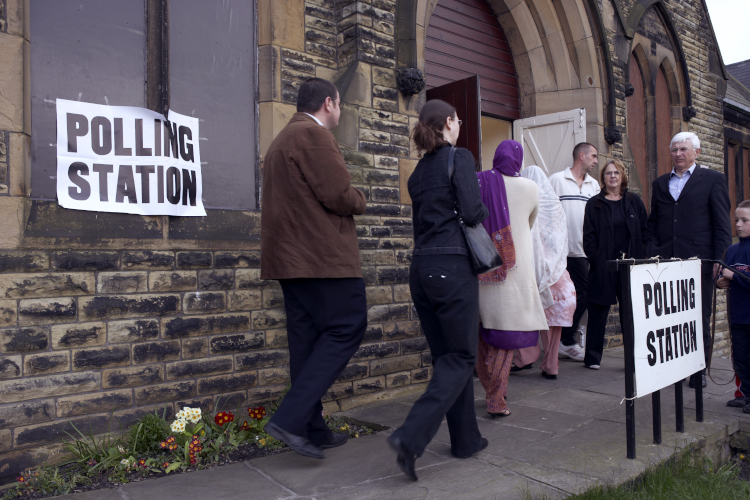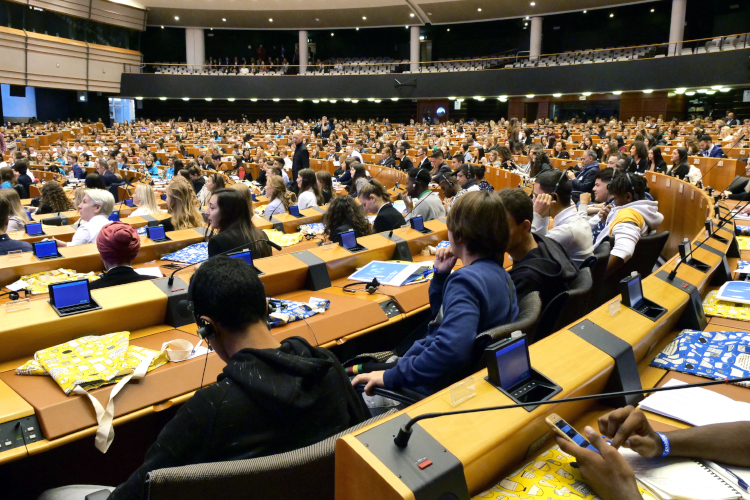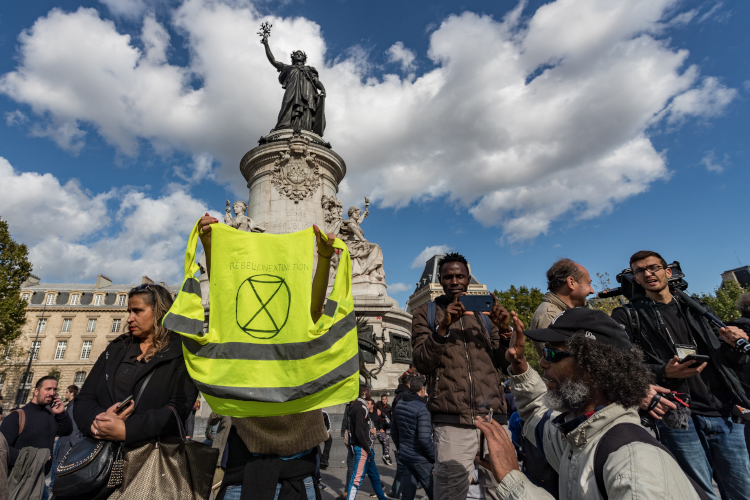When we look at the question of young people in democracy and the generation divide, we see two things going on. One is that the generation divide is widening. It used to be the case that the big division in democratic politics was on the basis of class or income. To know how people voted and what political attitudes they were likely to have, the first question you’d want to ask was what class that person comes from. Or how much money that person earns. Now, you discover much more by finding out someone’s age. People under the age of 35 tend to have political views, voting patterns, preferences on big questions that are very different from people over the age of 50 and, particularly, people over the age of 65. We see that gap widening.
Young people and democracy
Professor of Politics
- The generation divide in modern politics is constantly widening.
- The old and young have opposing opinions on many important political questions, but the democratic system is skewed towards the old.
- Giving children the vote is neither a radical nor dangerous idea.
A widening generation divide

Photo by Daniel Heighton
Take the example of the UK. Young people were overwhelmingly against Brexit, while older people were overwhelmingly in favour of it. At the last UK general election, young people voted overwhelmingly for Jeremy Corbyn and the Labour Party. If only people under the age of 30 had been allowed to vote, Corbyn would be prime minister, with the biggest majority in British political history. People over the age of 65 voted overwhelmingly for Boris Johnson and the Conservatives. And those two votes show the other thing that’s going on, which is a demographic shift.
When the old outvote the young
When politics becomes a contest between young people and old people, old people win because there are more of them. We live in aging societies where there are more people over the age of 40 than under 40; and in some societies – Italy, Greece, Spain – more people over the age of 45; and in very few societies – Japan is one – more people over the age of 50. And the older people are, the more likely they are to vote. So there are more older people and they vote in greater numbers.
This wasn’t always true. In our societies, 100 years ago, there were many more young people than old people. Democracy has acquired a big bias in favour of the old. We really see that divide acutely, with an issue like climate change for people under the age of 35. It is overwhelmingly their number one priority, while for people over the age of 65, tackling climate change is very low down the list of priorities. It comes behind health, education, immigration and the economy. And if older people’s views tend to be the ones that win in democratic contests, that is a big issue. Young people become increasingly angry; in surveys, we see that many of them are now suspicious of democracy. They think it’s skewed against them, and they have reason for thinking that.
How is democracy skewed against young people?
There is something else we need to take account of. When talking about our society’s divide between the people over the age of 45 and the people under the age of 45, that would be an even contest. But, of course, in democracy it’s not, because a significant part of the under-45s do not have a voice at all. That’s children. Whether the voting age is 18 or 16 or 21, most children everywhere in the world do not get a vote. It’s only the people between 18 and 45 who have a voice. That is another massive imbalance, because on issues like climate change, the people who care most about it are people under the age of 18, partly because they’re the ones who are going to have to live with it. If you are under 18 and you live in a country like Britain, France or Spain, your life expectancy, other things being equal, is close to 100 years now. If you’re now 16 and you’ve got another 84 years to go, a large part of that life may be lived in an uninhabitable world, and you have a democratic political system that gives you no voice at all. It’s a huge problem.
Give children the right to vote
One remedy would be to give children the right to vote. But, what’s interesting about even suggesting that is that people are profoundly shocked by it. They think it’s an incredibly radical idea to allow, say, 10 year olds or 8 year olds or even 6 year olds to vote. They think it’s dangerous and it could destroy democracy. But people made the same arguments about giving women the vote. Those arguments were wrong then and they’re wrong now.
Giving children the right to vote is not dangerous. Enfranchising children would not threaten anything. Children would not get to choose the next government because they would still be outvoted by people over the age of 18, but they would have a voice. It’s about deciding whether giving children the vote would be more dangerous to democracy than a political system that allows people who believe that climate change is not a priority to keep winning elections. I know the answer to that. Children voting is not the most dangerous option.

Photo by ID stock Photography
Many other ways of doing democracy
When you think about representing younger people, you quite quickly realise the limits of our form of democracy focussed on elections, political parties and representation in parliaments and legislatures. There are so many other ways of doing democracy and many other ways of involving young people.
Citizens’ assemblies could represent populations in very different ways than parliaments do. Parliaments around the world still skew heavily in favour of older representatives. The average age of the members of the UK parliament is 50. Fifty years ago, it was 50; 100 years ago, it was 50. People under the age of 50 can be represented in different ways. You can set up an alternative parliament – a citizen’s parliament – in which citizens are either chosen at random to have a sample of the population that included younger people, or chosen consciously to represent underrepresented groups, ethnic minorities, women, certain kinds of workers, the unemployed, the young children. That’s still democracy. It doesn’t have to be done through elections. Randomly chosen assemblies were how the ancient Athenians did democracy. The foundational principle of their democracy was that anyone could do it.
We could choose people at random to take decisions and we could do that now, but we don’t because we’re scared of tinkering with our democracy. We think democracy is fragile and that playing around with new ways of doing politics will break it, whereas in some ways the risk is that it will get broken because we don’t try these new things.
Getting people’s attention
The school strike against climate change showed that street politics, direct democracy, protests, Extinction Rebellion – another environmental protest group – do get people’s attention. But that attention can be quite transient and doesn’t last long. It can be something that politicians pay attention to until something more pressing comes along. Street politics is very good at getting people’s attention, but if you want to hold people’s attention, you have to have representation in the rooms, in the places, in the parliaments where the decisions are made.
That means we either need young people in there or people who are answerable to young people. We should try and find ways for young people to play traditional roles, as well as new roles, and their traditional roles in representative democracy are either to vote or to be voted into a parliament.

Photo by Gabriel 12
In the UK Parliament at the moment, of the 600-plus members, maybe 10 are in their 20s. It would be a very different parliament if 100 of them were in their 20s. But to get 100 people in their 20s voting into a parliament, you need radical reform of how democracy works. And that’s what we need.
Discover more about
young people's role in democracy
Runciman, D. (2013). The Confidence Trap: A History of Democracy in Crisis from the First World War to the Present. Princeton University Press.
Brito Vieira, M., & Runciman, D. (2008). Representation. Cambridge University Press: Polity.
Runciman, D. (2020). Talking Politics, the podcast.
Runciman D. (2021). Confronting Leviathan, A History of Ideas, Profile Books.